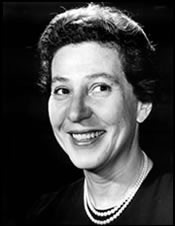
|
Compositions *** |
Chamber Concerto for Cello and Six Instruments
year
1966
duration
10 minutes
instrumentation
Solo cello, oboe, violin, viola, cello, double bass, and piano
commission
George Finckel
première
December 5, 1979, Windham College, Putney, Vermont. George Finckel, solo cello, Gunnar Schonbeck, clarinet, Eric Rosenblith, violin, Alice Webber, viola, Pamela Bostelmann, cello, Marianne Finckel, double bass, Lauren Levey, piano, Vivian Fine, conductor
recording
Available on demo CD
movements
- Recitative; A Sequence for St Michael (Alcuin)
- Declamation; Prayer (W.H. Auden)
- Lament (Abelard)
program notes
George Finckel, cellist at Bennington, asked that Fine write a piece for him. At the time she was working on a cantata for voice and orchestra based upon writings by Alcuin (735-804), W.H. Auden (1907-1973), and Pierre Abelard (1079-1142), an eclectic assortment of texts that portray a spiritual questioning about mercy, justice, truth, and the pursuit of peace. Since Finckel was such an expressive cellist, Fine abandoned the cantata format and reshaped her ideas as the Chamber Concerto for Cello and Six Instruments (1966), choosing oboe, violin, viola, cello, double bass, and piano to accompany the soloist. However, the idea of the cantata permeates the concerto, which begins with a cello recitative that is followed by three movements….Short passages of text are inscribed at the beginning of each movement…[Fine also followed this custom with a number of other pieces, most notably with Poetic Fires (1984) for orchestra, where texts by Homer and Aeschylus precede each section]
“A Sequence for St. Michael” comprises eight long phrases for the cello with the ensemble occasionally punctuating with fused chords, doubling, a countermelody, or terraced textures that add drama to the cello melody. The short “Declamation” which follows is for oboe, violin, viola, and double bass. Fine used an articulated oboe melody, accompanied by pizzicato string counterpoint, to close the supplication to Michael. The passage is marked “with bite,” which is followed by an intense “Prayer” inscribed with Auden’s text: “O God, put away justice and truth, for we cannot understand them and do not want them. Eternity would bore us dreadfully.” The prayer is through-composed featuring passages for solo cello. The Chamber Concerto ends with a disturbed “Lament” inspired by the biblical text of David’s grieving for his friend Jonathan. The oboe and cello participate as alternating soloists expressing their sorrow.–Heidi Von Gunden, The Music of Vivian Fine, Scarecrow Press, 1999
audio files
Recitative; A Sequence for St Michael (Alcuin)